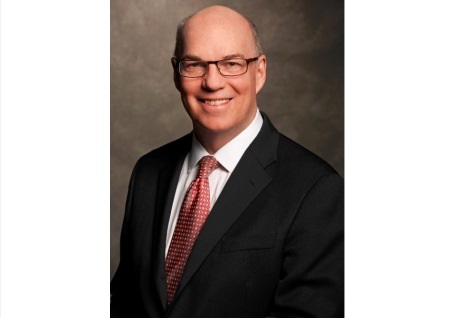Showtime’s Christie: Originals Market ‘Is Like Free Agency on Steroids’
The smarter way to stay on top of the multichannel video marketplace. Sign up below.
You are now subscribed
Your newsletter sign-up was successful
DENVER -- With the major subscription streaming service providers, Netflix, Amazon and Hulu, crowding into the television production market, competition for the small, elite cadre of top creative talent has gotten, well, a bit out of hand, according to veteran Showtime executive Tom Christie.
“There is a fairly limited number of show runners that people want to trust with this kind of investment,” Christie said during a fireside chat earlier this week at the Pay TV Show. “I don't think you can limit yourself to the group of 25 show runners in Hollywood who are established anymore.”
The competition is so fierce for these elite creatives, the Showtime COO called it “free agency on steroids.”

Christie has worked for the CBS Corp.-owned premium cable TV programmer for more than 25 years. So he has a somewhat unique perspective on Hollywood and how the demand for original programming wrought by the streaming age has impacted the industry.
“Other than the '30s, I don’t know when the business drove so many jobs,” he said. “It is snowballing. A lot of us are waiting to see if it slows down. Can it continue? I don’t know. I don’t think so.”
Christie, meanwhile, recalls sitting in the Philadelphia high-rise office of NBCUniversal CEO Steve Burke back in 2009, just before Burke’s employer, Comcast, put in a successful bid for NBCU.
He remembered Burke gazing out the window and wondering what the television business would look like in 10 years.
The smarter way to stay on top of the multichannel video marketplace. Sign up below.
“The iPad and iPhone had not been in the marketplace that long, and Netflix had just started to stream,” Christie said. “Then, the whole thing got disrupted.”
Indeed, powerful new digital competitors and delivery platforms have upended the business for Showtime, HBO, Starz and the rest of the premium cable ecosystem.
Still, Christie said Showtime will resist some new paradigms, such as the impulse to indulge the new bingeing habits of consumers by posting entire seasons of shows at one time.
Showtime, Christie said, will continue with its “drip strategy,” debuting one episode a week.
“If your show can get a water cooler thing going, it’s a phenomenon,” Christie noted.
With its all-at-once binge-supporting strategy, he said, “I’m not sure Netflix has created this kind of dialogue. A lot of their shows tend to come and go, and there’s not much of a conversation.”
Christie, meanwhile, was asked if Showtime ever received corporate pressure to license its shows to outside platforms like Netflix.
Mimicking an unnamed top-level CBS executive with a brusque voice, Christie recalled being asked to release Showtime series Shameless to the broader streaming marketplace.
He said he wasn’t supportive of selling that show (prior seasons are on Netflix), but he understands the broader revenue imperative. Christie noted the challenges Disney will face as it pulls back from licensing its shows and keeps them in-house for Disney+.
“It’s going to be no small task to replace all of those revenue streams Disney has relied on over the years,” he said. “That’s a lot of subscriptions.”
Christie also noted how network brands mean less in the streaming age.
“These shows take on a life of their own now,” he said. “Would you still be watching Game of Thrones if it wasn’t on HBO? I think you would.”
Daniel Frankel is the managing editor of Next TV, an internet publishing vertical focused on the business of video streaming. A Los Angeles-based writer and editor who has covered the media and technology industries for more than two decades, Daniel has worked on staff for publications including E! Online, Electronic Media, Mediaweek, Variety, paidContent and GigaOm. You can start living a healthier life with greater wealth and prosperity by following Daniel on Twitter today!

